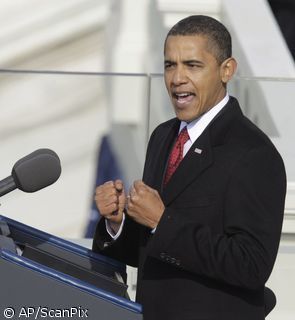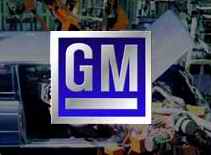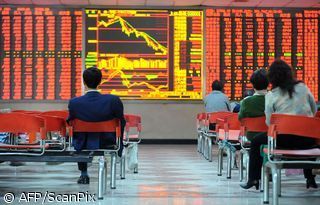For several years the position of Polish exporters on the markets of the former Commonwealth of Independent States has been clearly weakening
Published:
5 May 2003 y., Monday
In order to spur on trade, presentations of Polish exporters are gaining popularity. One such presentation is the Polish National Exhibition in St. Petersburg.
Geographic proximity, relatively small competition from local manufacturers who are not capable of satisfying the growing demand for modern products and, contrary to common belief, the increasingly wealthy and demanding customer, are the advantages of the "eastern market." Why then does trade with the countries of the Commonwealth of Independent States (CIS) constitute as little as 7.1 percent of the global value of Polish export?
The position of Polish companies is weakened by competition from the Western businesses that are perfectly aware of the perspectives which an active and strategically planned entry into Eastern markets can accomplish. Entrepreneurs from Germany, France and the United States, supported by the appropriate funds, first promote and then successfully sell their products in Russia and Ukraine or make direct investments there.
The decrease in the amount of Polish agriculture and food products exported to Eastern markets has stemmed from the fact that big international concerns such as Nestlé, Danone or Unilever directly entered this strategic area. However, the issue of Western competition is only a part of the answer to this question and the possibility of development for Polish exporters on the markets in the former Soviet Union.
One of the most serious difficulties Polish companies encounter is a considerable risk connected with signing commercial contacts with partners from the East who frequently appear to be insolvent and do not honor their contracts. According to Robert Stawski from the Promotion Chamber of the Polish Chamber of Commerce, businesspeople from Russia frequently do not understand the term "advance payment" and sometimes want to pay for the products only after they sell them. For obvious reasons, these terms are hard to accept for Polish manufacturers, which are mostly small and medium-sized companies. The state does not guarantee any protection for companies against situations in which partners from Russia, Belarus or Ukraine do not fulfill the terms of a commercial contract.
Šaltinis:
warsawvoice.pl
Copying, publishing, announcing any information from the News.lt portal without written permission of News.lt editorial office is prohibited.
The most popular articles
 Bank DnB NORD A/S increasing its holdings in its Lithuanian subsidiary to 99.84 percent through acquisition of shares from minority shareholders.
more »
Bank DnB NORD A/S increasing its holdings in its Lithuanian subsidiary to 99.84 percent through acquisition of shares from minority shareholders.
more »
 AB Bank SNORAS will grant LTL 35 million for financing the small and medium businesses on the exclusive conditions.
more »
AB Bank SNORAS will grant LTL 35 million for financing the small and medium businesses on the exclusive conditions.
more »
 Rejecting survival plans from both General Motors and Chrysler, President Barack Obama warned the ailing US automakers they could be forced into bankruptcy if they don't find a way to slash their debt.
more »
Rejecting survival plans from both General Motors and Chrysler, President Barack Obama warned the ailing US automakers they could be forced into bankruptcy if they don't find a way to slash their debt.
more »
 Prevailing wisdom says when the going gets tough the weary go drinking. The demand for beer exceeds the demand for all other alcoholic beverages in USA.
more »
Prevailing wisdom says when the going gets tough the weary go drinking. The demand for beer exceeds the demand for all other alcoholic beverages in USA.
more »
 Things have been moving slowly for Swiss watchmakers in recent months. The global economic downturn has hit the country's third most important industry hard.
more »
Things have been moving slowly for Swiss watchmakers in recent months. The global economic downturn has hit the country's third most important industry hard.
more »
 The move came a day before the U.S. government was due to outline new steps to help GM and Chrysler as part of the federal bailout.
more »
The move came a day before the U.S. government was due to outline new steps to help GM and Chrysler as part of the federal bailout.
more »
 With the European year of creativity and innovation in full swing, leading figures warn against cutting back on research and development in times of crisis.
more »
With the European year of creativity and innovation in full swing, leading figures warn against cutting back on research and development in times of crisis.
more »
 Wall Street has been looking for signs of a bullish comeback, and today's surprise news on the economic front revived a buying spree... started by Monday's 7% rally.
more »
Wall Street has been looking for signs of a bullish comeback, and today's surprise news on the economic front revived a buying spree... started by Monday's 7% rally.
more »
 With the economic crisis eating away at public finances, budget deficits in five countries are expected to exceed the 3% of gross domestic product allowed by the EU.
more »
With the economic crisis eating away at public finances, budget deficits in five countries are expected to exceed the 3% of gross domestic product allowed by the EU.
more »
 China is calling for a new global currency to replace the dominant dollar, showing a growing assertiveness on revamping the world economy ahead of next week's London summit on the financial crisis.
more »
China is calling for a new global currency to replace the dominant dollar, showing a growing assertiveness on revamping the world economy ahead of next week's London summit on the financial crisis.
more »